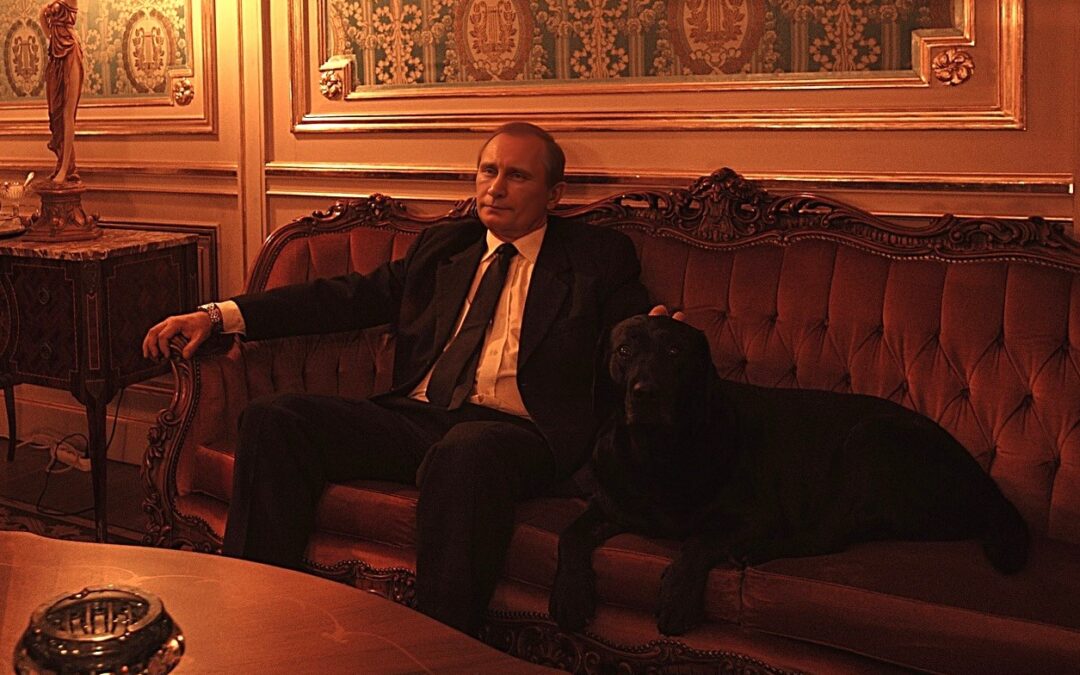Keep our news free from ads and paywalls by making a donation to support our work!

Notes from Poland is run by a small editorial team and is published by an independent, non-profit foundation that is funded through donations from our readers. We cannot do what we do without your support.
A new English-language Polish film about Vladimir Putin, in which the Russian president is portrayed using AI-powered special effects to superimpose his real face on an actor, will premiere on 10 January.
The biopic, titled Putin, is the work of Polish filmmaker Patryk Vega, who is best known for movies about the criminal underworld.
The director had initially planned to make a film about Russian gangsters but, after the full-scale invasion of Ukraine in 2022, he decided to focus on “Russia’s biggest gangster”, Putin, he told newspaper Gazeta Wyborcza.
Putin, which is Vega’s first English-language film and cost $15 million to produce, has attracted particular interest because of the use of technology to create a realistic image of the Russian president. The director says that the movie will be screened in 64 countries.
“The audience needed to see the real Putin,” Vega told British newspaper The Telegraph. “They see him every day in the media. Even the best actor with great make-up wouldn’t convincingly portray a figure everyone in the world knows so well.”
To achieve the realistic portrayal of the Russian leader, Vega combined the work of a Polish actor, Sławomir Sobala, who spent two years mastering Putin’s mannerisms and body language, with the use of AI to replicate Putin’s face on screen.
The film portrays Putin as a ruthless, power-hungry leader, interweaving dramatised accounts of documented events with fictional elements spanning decades of his life, from his childhood to his presidency and Russia’s full-scale invasion of Ukraine.
In one scene, a young Putin declares “it is better to die standing than live on your knees”. Later depictions include a hunting expedition where women dressed as Playboy bunnies serve as the “prey”.
Yet despite this strong and ruthless facade, Vega says that he ultimately wanted to portray Putin as a weak and frightened person. For instance, in promotional material, Putin is pictured sitting on the floor wearing a nappy.
“Everyone is afraid of Vladimir Putin [but] in my film, he is a terrified man who is terrified of death,” wrote Vega on social media, later telling Gazeta Wyborcza: “My thesis is that Putin is a coward…I wanted to expose Putin, to let the audience get extremely close to the caged tiger and show them that this tiger is also afraid.”
The film’s content and methods have sparked debate. While some highlight its creative use of AI, others criticise its reliance on exaggerated tropes and question its ethical implications.
Vega, however, rejects the criticism. “In his case, we are dealing with an important social interest. This man is accused of war crimes. This gives me the green light to make such a film,” he told Gazeta Wyborcza.
The filmmaker also claims that his work attracted the interest of Russian intelligence agents, who allegedly posed as US buyers and offered $200,000 for the script. Vega claims he redirected them to Poland’s intelligence agency, after which the offers ceased.
Russia has ordered the closure of Poland’s consulate in Saint Petersburg and has expelled diplomats working there.
It did so as retaliation for Warsaw's recent decision to close a Russian consulate in response to Russian sabotage actions in Poland https://t.co/jGyz6ga6IF
— Notes from Poland 🇵🇱 (@notesfrompoland) December 5, 2024

Notes from Poland is run by a small editorial team and published by an independent, non-profit foundation that is funded through donations from our readers. We cannot do what we do without your support.
Main image credit: Patryk Vega / Facebook

Alicja Ptak is deputy editor-in-chief of Notes from Poland and a multimedia journalist. She has written for Clean Energy Wire and The Times, and she hosts her own podcast, The Warsaw Wire, on Poland’s economy and energy sector. She previously worked for Reuters.



















